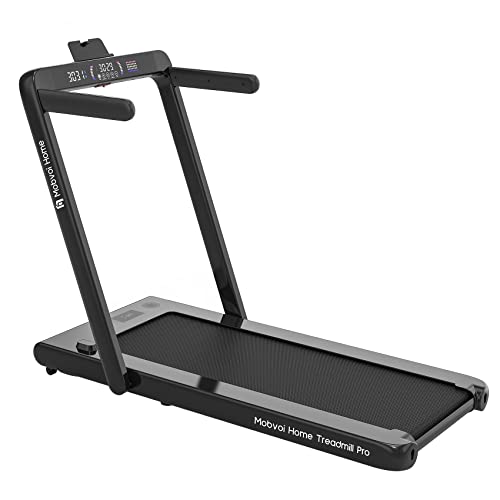5 Clarifications On Treadmill Machine
The Treadmill Machine: An Educational Guide to Your Fitness Journey
The treadmill machine has actually become a vital tool in contemporary fitness routines. Whether one is a seasoned athlete or a novice trying to get into shape, a treadmill provides a practical and effective way to attain physical fitness objectives. New Treadmills will explore the numerous aspects of treadmill machines, their benefits, different types available, and standards for efficient usage.
Advantages of Using a Treadmill
Treadmills provide various physical and psychological health benefits that contribute to total well-being. Some key advantages consist of:
- Cardiovascular Health: Regular use of a treadmill assists in improving heart health by enhancing the heart muscles and enhancing circulation.
- Weight-loss: By engaging in constant cardiovascular exercises, people can burn significant calories, helping in weight loss and management.
- Joint-Friendly Exercise: Treadmills supply a controlled environment that permits users to adjust speeds and slopes, making it much easier on the joints than working on tough surfaces.
- Convenience: Treadmills are particularly useful for those who live in areas with unfavorable weather, as they can be utilized inside year-round.
- Adjustable Workouts: Many modern treadmills come equipped with programs and functions that enable users to customize their exercises for differing intensity levels.
Health Benefits Overview
Benefit
Description
Cardiovascular Improvement
Enhances the heart, improving overall circulation and endurance.
Weight Management
Effective calorie burning leading to weight-loss.
Injury Prevention
Decreased threat of injury due to adjustable surfaces and controlled environments.
Motivation and Consistency
Provides an indoor option that motivates routine exercise despite weather condition conditions.
Improved Mood
Routine workout adds to the release of endorphins, improving mental well-being.
Types of Treadmill Machines
While treadmills may appear uncomplicated, various types cater to various needs and preferences. Here are the main classifications:
Manual Treadmills: These need no power and are propelled by the user's effort. Running Machine For Home take up less area and are quieter but can provide a steeper learning curve for beginners.
Electric or Motorized Treadmills: The most typical type, they feature automatic programs for speed and incline. They are generally more flexible however need electrical power to run.
Folding Treadmills: Designed for those with minimal space, folding treadmills can be collapsed and kept away when not in use, making them ideal for small houses.
Slope Treadmills: These machines provide the capability to raise the slope, simulating hill runs for a more effective exercise.
Commercial Treadmills: Built for heavy use, these machines are usually found in health clubs and gym and feature a series of functions and resilience.
Contrast of Treadmill Types
Type
Source of power
Best For
Area Considerations
Handbook
None
Newbies, budget-conscious users
Low
Electric
Plug-in
Varied intensity workouts
Medium to High
Folding
Plug-in
Restricted space users
Low
Incline
Plug-in
Extreme cardio and strength
Medium to High
Commercial
Plug-in
Frequent gym use
High
Tips for Effective Treadmill Use
To take full advantage of the benefits of a treadmill regimen, here are a number of ideas to think about:
- Warm-Up: Start every exercise with a 5-10 minute warm-up at a sluggish speed to prepare the body.
- Posture: Maintain an upright posture, keeping shoulders back and head up to prevent stress and injury.
- Interval Training: Incorporate numerous speeds during exercises (high-interval training) to improve cardiovascular physical fitness and burn calories.
- Usage Inclines: To even more boost workouts, include incline alternatives to simulate hill running, which constructs strength in the legs.
- Stay Hydrated: Keep a water bottle nearby, ensuring to drink before, during, and after exercises to stay hydrated.
Recommended Treadmill Workouts
- Newbie's Walk: Start at a moderate speed for 20-30 minutes, gradually including speed as convenience boosts.
- Hill Intervals: Alternate between slope and flat surface areas, sprinting uphill for 1 minute followed by walking for 2 minutes.
- Long-Distance Run: Target a stable speed for a prolonged period (40-60 minutes), focusing on endurance.
- Speed Training: Change speeds every minute, beginning with a light jog to brief bursts of running to enhance speed and cardiovascular health.
FAQs
Q1: How often should I use a treadmill for reliable results?
A1: It is generally advised to use a treadmill at least three times weekly for 30-60 minutes to see substantial outcomes.
Q2: Can I lose weight using a treadmill?
A2: Yes, with a mix of regular workout, a balanced diet, and part control, using a treadmill can contribute greatly to weight-loss.
Q3: Do I require to warm-up before using the treadmill?
A3: Yes, heating up is necessary to prepare your body, decrease the danger of injury, and enhance exercise efficiency.
Q4: Is running on a treadmill as reliable as running outdoors?
A4: Both have advantages, but a treadmill enables controlled environments, preventing weather-related interruptions, and may have less effect on the joints.
Q5: Can a treadmill aid with muscle building?
A5: While primarily a cardiovascular tool, adjusting slopes can help engage and strengthen particular leg muscles.
Treadmill machines are flexible and can be an important part of a physical fitness journey. By comprehending the numerous types, advantages, and effective use methods, people can use the full potential of this devices. Whether aiming for enhanced cardio health, weight management, or boosted mental well-being, a treadmill works as a reliable buddy on the road to physical fitness.
